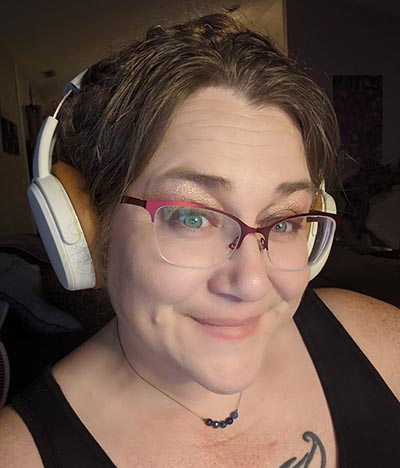When Does the Grace Period on Ignorance Expire?


His skin was SO black, and SO shiny, I was convinced he was a robot, and I was scared.
I was about eight years old, and my dad was a non-traditional student at the university in the nearest big city (Green Bay), and being a consummate People Person, he was always inviting people to our farm, sometimes in small groups, sometimes in large ones. My dad’s also been a strident advocate for the underdog my whole life, and when he found out that the Muslim students at the university couldn’t find halal meat (not a common grocery option back in the early 80’s… at least not in Wisconsin!) he worked out a deal.
We had a massive herd of goats and sheep on our farm, so he’d sell live animals to people or groups of people, and they’d come to the farm and prayers would be said, butchering would happen, and, most awesome to the child/budding foodie me, massive feasts would ensue, as people brought delicacies from their home countries, and impromptu soccer games would break out in the front yard, and music from around the world filled our house, and our lives. From a very young age, I was surrounded by diversity on a level I only much later appreciated as a) unusual and b) an amazing gift.
That afternoon certainly wasn’t the first time I’d seen a dark-skinned person. We’d been having gatherings at our house for some time. He was just SO very unusual. Not only was his skin so dark it almost looked blue as he stood there, glistening in the sun. He seemed to be ten feet tall, and towered over everyone in the room.
(He was more likely 6, 6.5 ft, but I’m only five feet NOW as a grown woman!)
I don’t know WHY I thought he was a robot. I did read a LOT of hard core science fiction, so that probably had something to do with it. Regardless, I was full-on freaked out. One of the other guests, someone who had been to our house several times, noticed my panic and quickly realized the source of it. I will never forget how he took great care to introduce me to the newcomer, and commented that the newcomer had raised goats as a child, as well. The goats and sheep were my responsibility (I started milking goats when I was six), and that quickly led us into a conversation about… well… I don’t remember exactly what, but I know it was about goats, and we agreed that they are tricky troublemakers, and soon we were fast friends.
My experiences as child (and since) gave me a lot of insight into how we have far more in common than the narrative of fear and divisiveness would suggest, but my classmates lived a very different life. Despite there being an Indigenous Peoples reservation in the next county (at which my dad worked and where we also spent tremendous amounts of time, both socially and for my dad’s work), and a bustling Hmong population in Green Bay (where my family shopped for “exotic” ingredients), most of my classmates’ biggest brush with diversity was meeting people who were Lutheran instead of Catholic (or vice versa), or being fans of football players of colour, that they never actually met in person. Our yearbook pictures tell this story in vibrant, PALE stark reality.
I cannot, and would never, claim that I understand what it is like to walk through the world with a skin colour that makes me a target of systemic, institutionalized racism. I also cannot fathom how people who live in 2020 are still clinging to the belief that “You are different – therefore you are a threat”.
A former supervisor was feeling particularly crabby one day and said to me, as I was getting his signature on some paperwork… “You know how lazy those filthy Mexicans are!” Fully expecting me to join in the disparaging laughter, and fully taken aback when I said “My sisters are Mexican, and my experience has been that people who came here to support their families are some of the hardest working people I’ve ever met” it didn’t just catch him by surprise – it cost me a promotion. I heard through the grapevine I was “not leadership material.” (Translation: Not like him. Thank goodness!) The evidence in front of his OWN eyes should have been enough to convince him that his own words were false. The guys on the floor who were “… lazy” were never late to work, never called in sick, always met their quotas, and so on. And yet he allowed himself to perpetuate his OWN bias – and nobody called him on it. He was the plant supervisor, after all. People need their jobs.
And it’s NOT just skin colour. I could fill the pages of a book with stories of blatant ongoing “othering” that I’ve experienced in my own right, and certainly witnessed over and over again. I was a woman in the military – a space ripe with excuses for why women are treated horrifically. I’m in a same-sex marriage, in a country where gay marriage may be legal, but the gay/trans panic defense is still allowed in many states to justify/explain killing someone.
The list goes on and on, and it dawned on me recently that we’re always painting this as a problem through the lens of the marginalized/abused, and the social dialogue doesn’t shape accountability for the ones DOING the marginalize/abusing – hell, it doesn’t even make them the subject of the sentence most of the time! That accountability needs to start showing up, albeit with a thick slathering of empathy.
I am willing to say “Hey, I see you’re unaware of how uninformed you are about how humanity actually functions…” and I’m willing to give people a hot second to get their act together – but for how long? Because “as long as it takes” has been millennia, y’all, people are still being raped, murdered, and abused at the hands of a system that WE CAN CHANGE – if we choose to do so.
I’d really like for my children not to get sexually assaulted in their dorms – their workplaces – their communities, and if they ARE I would like there to be real consequences for their abusers. I’d really like people to stop being killed because their skin is darker or their religion is unfamiliar or their objects of (consensual) sexual desire are different and “it freaked me out”. A fair playing field in business, and in life, is a tall order, but not an unreasonable one.
We can and should call for more Education, more awareness, more empathy – but what we CANNOT do is continue to turn a blind eye because the conversation makes us uncomfortable, or use the “panic defense”, or excuse the willful choice to wallow IN that ignorance as justification for doing material harm in this world.
I was raised to appreciate diversity and expect inclusion (even for possible robots!), and to stand up and speak out for those who cannot. It’s not always comfortable – Actually, it’s usually distinctly gross. It’s still the right thing to do, and until more of us get cozy with getting in there and being grossed out, I don’t see change happening any time soon.
Jason Barnaby recently admonished a crowd to “Get Comfortable being Uncomfortable.” I grew up on a farm… I’m pretty used to getting mud on my boots. C’mon in. The work gets done faster with friends.
(Originally published on my LinkedIn profile – Let’s connect there, too!)
Originally Published on https://www.happinessiscourage.com/blog/
























